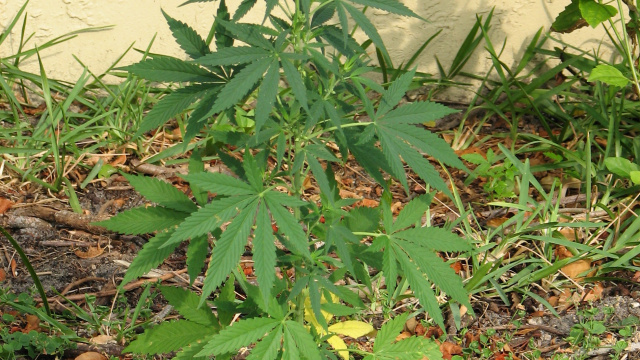Vote Hemp has learned today that Senator Rand Paul (R-KY) has signed on as a co-sponsor of Senator Ron Wyden’s hemp farming amendment (S.AMDT.2220) to the Farm Bill (S.3240), the Agriculture Reform, Food, and Jobs Act of 2012. Announced by Senator Wyden’s office yesterday, the amendment would exclude industrial hemp from the definition of ‘marihuana.’ Senator Wyden’s amendment will empower American farmers by allowing them to once again grow industrial hemp, a profitable commodity with an expanding market. The cultivation of industrial hemp will be regulated by state permitting programs, like North Dakota’s, and will not impact the federal government’s long-standing prohibition of marijuana.
To view the amendment, please go to: http://votehemp.com/legislation.
Motivated by the potential for economic development in their home states, both Senators see tremendous potential in the ability to grow and process industrial hemp. Senator Paul’s home state of Kentucky, like Senator Wyden’s Oregon is one of many states where local farmers, businesses and lawmakers are inspired by the promise of industrial hemp production.
“I am grateful to Senators Paul and Wyden on their leadership on this important issue,” Kentucky Agriculture Commissioner James Comer said. “Kentucky was a leader in industrial hemp production two generations ago, and today Kentucky is leading the way toward restoring hemp to its rightful place as a legal and viable farm product.”
A 1998 study by the Center for Business and Economic Research at the University of Kentucky found that farmers in the state of Kentucky alone could see between $220 to $605 in net profits per acre of hemp. Writer Stephen C. Webster of The Raw Story blog observed that “Adjusted for inflation using the consumer price index, those 1998 dollars would actually be worth $310 and $854 today, although the study’s authors note that variables in supply and demand for hemp could change that valuation.”
“Industrial hemp is used in many healthy and sustainable consumer products. However, the federal prohibition on growing industrial hemp has forced companies to needlessly import raw materials from other countries,” says Senator Ron Wyden (D-Oregon). “My amendment to the Farm Bill will change federal policy to allow U.S. farmers to produce hemp for these safe and legitimate products right here, helping both producers and suppliers to grow and improve Oregon’s economy in the process.”
To date, thirty-one states have introduced pro-hemp legislation and seventeen have passed legislation, while eight states (Hawaii, Kentucky, Maine, Maryland, Montana, North Dakota, Vermont and West Virginia) have removed barriers to its production or research. However, despite state authorization to grow hemp, farmers in these states risk raids by federal agents and possible forfeiture of their farms if they plant the crop, due to the failure of federal policy to distinguish oilseed and fiber varieties of Cannabis (i.e., industrial hemp) from psychoactive drug varieties.
“This is the first time that language supporting hemp has come to the floor of the House or Senate for a vote since the Controlled Substances Act was passed in 1970,” says Eric Steenstra, President of Vote Hemp. “The time is past due for the Senate as well as President Obama and the Attorney General to prioritize the crop’s benefits to farmers and to take action like Representative Ron Paul (R-Texas) and the cosponsors of H.R. 1831 have done. With the U.S. hemp industry valued at over $400 million in annual retail sales and growing, a change in federal policy to allow hemp farming would mean instant job creation, among many other economic and environmental benefits,” adds Steenstra.
The Farm Bill is the primary agricultural and food policy tool of the federal government. The comprehensive omnibus bill is passed every five years or so by the United States Congress and deals with both agriculture and all other affairs under the purview of the United States Department of Agriculture.
Last year, for the fourth time since the federal government outlawed hemp farming in the United States over 50 years ago, a bill was introduced by Rep. Paul in the U.S. House of Representatives. If passed the bill H.R. 1831, the Industrial Hemp Farming Act of 2011, would remove restrictions on the cultivation of industrial hemp, the non-drug oilseed and fiber varieties of Cannabis. Senator Wyden would like to introduce a companion bill in the Senate. The language of Wyden’s amendment mirrors that of H.R. 1831, a bill introduced in the House this session. To view, go to: http://hdl.loc.gov/loc.uscongress/legislation.112hr1831.
“Senator Wyden’s effort is unprecedented and totally commendable, but in my view the existing prohibition of hemp farming stems less from current law, but rather the misinterpretation of existing law by the Obama Administration,” says Steenstra.
The amendment comes on the heels of the Obama Administration’s reply to Vote Hemp’s We the People petition. The response conflates industrial hemp as a Schedule 1 controlled substance. This contradicts the clear definition of marijuana presented in Title 21 of United States Code 802(16) that explicitly excludes the oilseed and fiber varieties of the hemp plant that are legal to manufacture, consume, process and purchase throughout the United States without penalty of controlled substance violation. The hemp farming petition and the administration’s response can be found at: http://wh.gov/gKH.
The timing of Senator Wyden’s amendment also coincides with the 3rd annual Hemp History Week campaign, June 4-10, 2012, which he supports. The national grassroots education campaign organized by Vote Hemp and The Hemp Industries Association is designed to renew strong support for the return of hemp farming to the U.S. The 2012 Hemp History Weekcampaign will feature over 800 events in cities and towns throughout all fifty states.
Posted by David Hadland at 9:14 AM




Leave a Reply